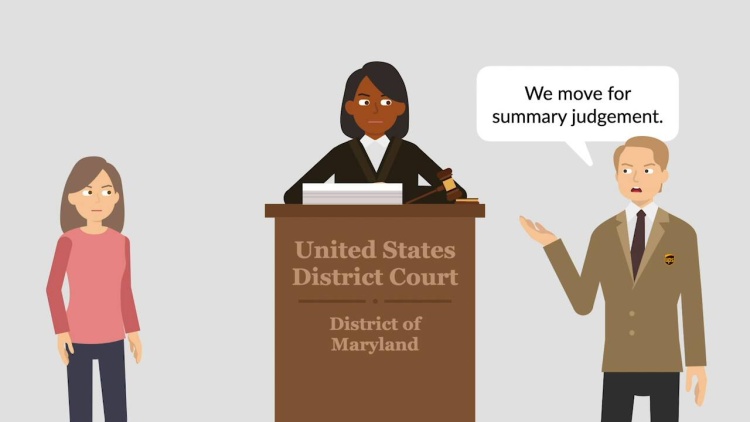Young v. United Parcel Service, Inc.
United States Supreme Court
575 U.S. 206 (2015)

- Written by Sean Carroll, JD
Facts
Peggy Young (plaintiff) was pregnant and worked as a driver for UPS (defendant). UPS required drivers to lift packages of up to 70 pounds. Young’s doctor told her that due to her pregnancy she should not lift more than 20 pounds during the first half of her pregnancy, and not more than 10 pounds during the second half. Young sought an accommodation, but UPS told Young that if she could not lift more than 20 pounds, she could not work, resulting in Young’s inability to work while pregnant. Young brought suit for pregnancy discrimination under the Pregnancy Discrimination Act and Title VII of the Civil Rights Act of 1964. Young argued that the act imposed a blanket prohibition on an employer distinguishing between pregnant workers and non-pregnant workers in terms of similar characteristics unrelated to pregnancy. Young presented evidence that UPS offered accommodations to other employees that sustained injuries on the job that prevented them from lifting heavy packages. Young also presented evidence that UPS offered accommodations if a disability arose off the job. Finally, UPS gave accommodations to drivers who lost their driver’s licenses. The district court granted UPS summary judgment. The United States Court of Appeals for the Fourth Circuit affirmed. The United States Supreme Court granted certiorari.
Rule of Law
Issue
Holding and Reasoning (Breyer, J.)
Concurrence (Alito, J.)
Dissent (Scalia, J.)
Dissent (Kennedy, J.)
What to do next…
Here's why 909,000 law students have relied on our case briefs:
- Written by law professors and practitioners, not other law students. 47,100 briefs, keyed to 997 casebooks. Top-notch customer support.
- The right amount of information, includes the facts, issues, rule of law, holding and reasoning, and any concurrences and dissents.
- Access in your classes, works on your mobile and tablet. Massive library of related video lessons and high quality multiple-choice questions.
- Easy to use, uniform format for every case brief. Written in plain English, not in legalese. Our briefs summarize and simplify; they don’t just repeat the court’s language.





